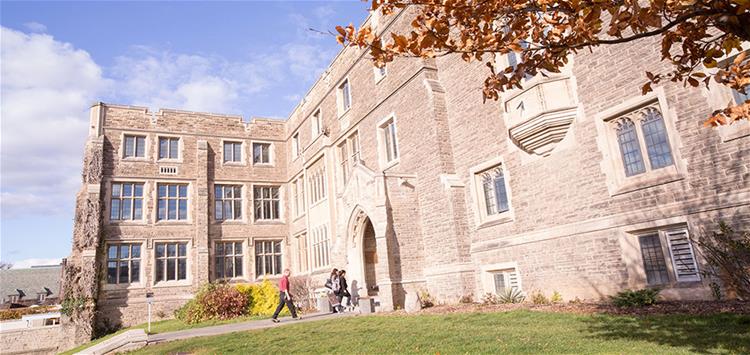
Published: October 19, 2017
McMaster University has joined the international Age-Friendly University (AFU) network, a global body made up of higher education institutions that are committed to being more accessible to older adults.
The AFU network was launched in 2012 by Dublin City University (DCU) in Ireland as a way to assist in addressing the challenges and opportunities associated with the world’s aging population. It builds on the World Health Organization’s Age-Friendly Communities Initiative, which encourages all communities to shape their physical and social environments to support people of all ages.
“Our interest in joining the network emerged because collaboration and community engagement are two key pillars at McMaster,” said Patrick Deane, President and Vice-Chancellor of McMaster University.
“By working together with our institutions, we can advance our mutual goals and have a positive impact on today’s aging population, as well as the growing population of older adults worldwide.”
McMaster University has a long history of building strength in aging research, housing a number of unique platforms focused on aging from multiple disciplines and perspectives. Last fall, the McMaster Institute for Research on Aging (MIRA) was launched as an overarching entry point to these resources, including the newly formed Labarge Centre for Mobility in Aging and the McMaster Optimal Aging Portal, and to facilitate new collaborations in aging research.
“We are delighted to welcome McMaster University to the global Age-Friendly University Network,” said Trevor Holmes, AFU’s Chair and Vice President for Strategic and External Affairs. “Their leadership in research and engagement across a wide range of relevant subject matters aligns perfectly with the AFU vision.”
“In particular,” he adds, “their unique evidence-based Portal, which translates cutting edge health research outcomes for a non-technical audience, offers significant opportunities to develop meaningful, collaborative, research proposals within the network to further contribute to the global dialogue on aging.”
McMaster University is one of just two Canadian universities to join the AFU network to date. Other members include the University of Manitoba, Arizona State University, University of Pai Chai in South Korea, the University of Massachusetts in Boston, and Florida South University Institute of Longevity, among others.
The 10 guiding principles of an age-friendly university are as follows:
- To encourage the participation of older adults in all the core activities of the university, including educational and research programs.
- To promote personal and career development in the second half of life and to support those who wish to pursue second careers.
- To recognize the range of educational needs of older adults.
- To promote intergenerational learning to facilitate the reciprocal sharing of expertise between learners of all ages.
- To widen access to online educational opportunities for older adults to ensure a diversity of routes to participation.
- To ensure that the university’s research agenda is informed by the needs of an aging society and to promote public discourse on how higher education can better respond to the varied interests and needs of older adults.
- To increase the understanding of students of the longevity dividend and the increasing complexity and richness that aging brings to our society.
- To enhance access for older adults to the university’s range of health and wellness programs and its arts and cultural activities.
- To engage actively with the university’s own retired community.
- To ensure regular dialogue with organizations representing the interests of the aging population.
For more information about McMaster’s platforms in aging research and its involvement with the Age-Friendly University (AFU) network, visit MIRA.McMaster.ca.